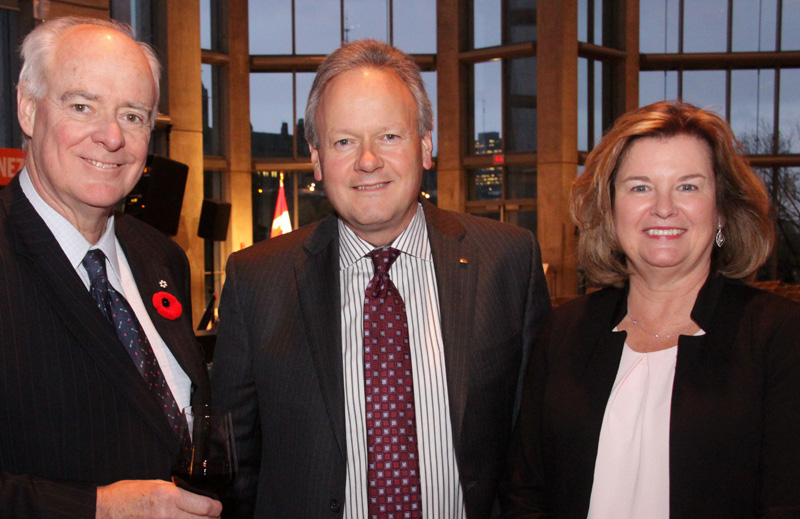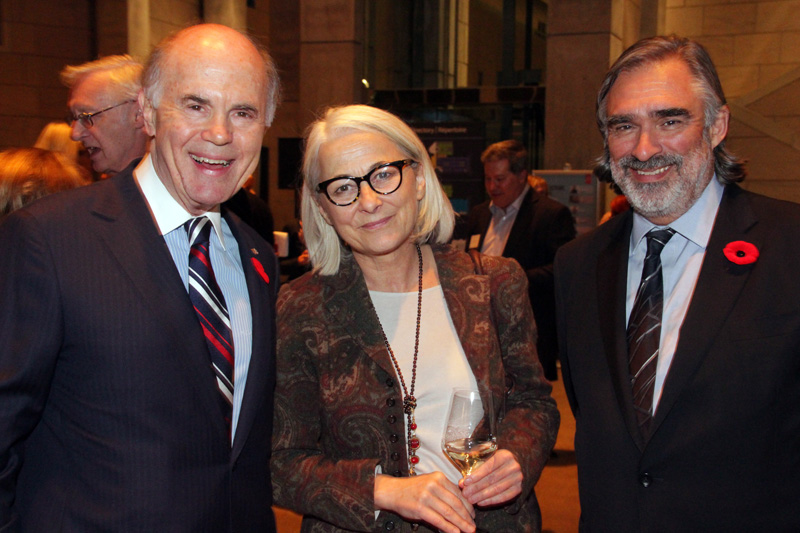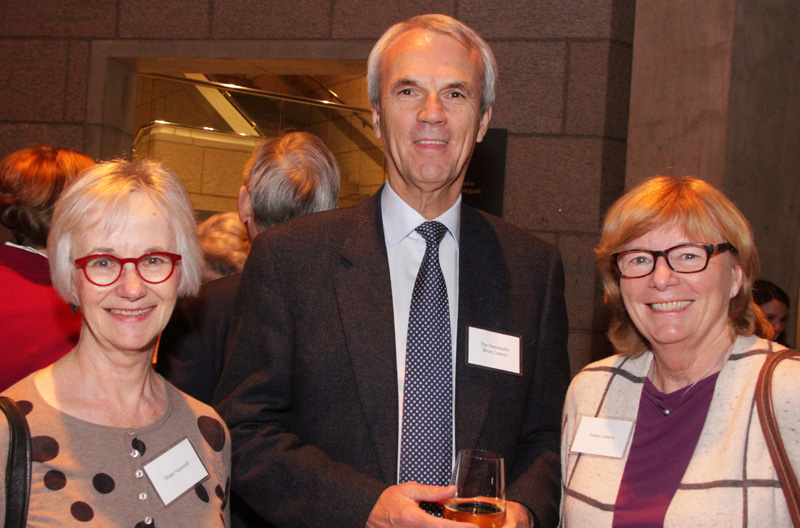When judicial trailblazer Beverley McLachlin first entered the workforce she was faced with a top-down leadership style dominated by white men who pretty much all walked, talked and thought the same.
“I accepted this as the norm; it was just the way things were. But, along the way, my conception of leadership changed; I came to believe that effective leaders value ethnic, social and gender variety in a group,” the retired chief justice of the Supreme Court of Canada said while delivering the 12th annual Thomas d’Aquino Lecture on Leadership, held at the National Art Gallery of Canada on Monday night and which earned her a standing ovation.
“It’s the right thing to do, and it works.”
OBJ360 (Sponsored)

Ottawa’s growth is at an inflection point
One thing the Welch LLP Business Growth Survey taught us this year is most of the business community thinks we’re on track, but have a ways to go.

Bringing France to Ottawa: Chef Yannick Anton recognized for contributions to the capital food scene
At the age of 14 in Nice, France, Yannick Anton was asked to choose a path for his career. After a few cooking classes in school, and seeing his grandfather
She spoke about the need for greater diversity in leadership before a crowd that included Bank of Canada Governor Stephen Poloz, Business Council of Canada CEO Goldy Hyder, Canadian Chamber of Commerce CEO Perrin Beatty, and German Ambassador Sabine Sparwasser.
“Leadership means more than just telling someone else what to do. It means working with that someone else to accomplish the goal,” she also said.
McLachlin was introduced by d’Aquino, chairman and chief executive of Intercounsel. The Ivey Business School at the University of Western established the annual lecture at a 2006 dinner held in Toronto to salute d’Aquino’s contributions to national and international business, public policy and the voluntary sector.
Businesses and institutions must reflect the diversity of the people they serve, McLachlin told the room.
“Diversity helps an organization formulate the right goals, arrive at the right solutions, recruit the best talent, avoid insensitivity traps and sustain public confidence,” she said.
“It remains something of a mystery that so many businesses and institutions still fall short in achieving diversity, although we have made great progress.”
Most corporate boards are still dominated by men; judges are slightly more than one-third women; and the representation from the Indigenous community in public and private institutions is “sorely lacking,” she said.


Not only was McLachlin the first woman in Canada elevated to top judge of the Supreme Court but she was also the longest serving chief justice, from January 2000 until her retirement last December. At age 75, she’s now working as an arbitrator and mediator, has joined Hong Kong’s Court of Final Appeal, and has had her first mystery novel, Full Disclosure, published.
The native of Pincher Creek, Alta. recalled how, back in her youth, her school teacher had warned her against becoming a waitress or telephone operator based on the results of her aptitude test. McLachlin had scored well in reading and comprehension but was advised that “words and ideas were a useless asset for a girl.”
“At the tender age of 13 I had hit the glass ceiling,” joked McLachlin.
Years later, during an articling interview, a senior male partner of the firm she’d been eyeing had questioned her desire to enter the workforce. “I sat mute, stunned into silence,” McLachlin told the room. “I had studied for seven years to get to this point and this man was asking me why I wanted to work, why I wanted to practice law.”
The lawyer noted that McLachlin had recently wed. In those days, married women were expected to stay home and support their husbands. “I recall nothing else except that I fled his office in bewilderment,” said McLachlin, who joined another firm that was less of an old boys’ club.

McLachlin shared with the room a favourite piece of advice that she got when she was first appointed chief justice. It came from a peer in California who told her: “When they hand you the reigns of power it takes about three days to discover they aren’t connected to anything.”
He was right, she added. “A chief justice has no more power than any other justice.
“As I reflected on my impossible new position, it came to me that there was one thing I could do; I resolved to do whatever I could to make each justice of the court be the best possible judge they could be. It might be a word of advice, it might be listening to a grievance, it might be getting them the support they needed or helping them through a family mishap or health problem.
“My new leadership role, such as it was, was not about me; it was about enabling the men and women I worked with, with all their differences and in all their diversity, to do the best they could in our collective, cooperative task of bringing justice to the Canadian people.”
The inaugural lecture was delivered in 2006 by d’Aquino at Ivey and the Toronto Club. Subsequent presenters have included Kevin Lynch, former Clerk of the Privy Council and Secretary to the Cabinet, then-Bank of Canada Governor David Dodge, former Deputy Prime Minister John Manley, The Home Depot president Annette Verschuren, former finance minister and Canadian ambassador to Washington, Michael Wilson, then-Bank of Canada governor and governor-elect of the Bank of England, Mark Carney, Linamar Corporation chief executive Linda Hasenfratz, Tom Jenkins, chairman of OpenText Corporation, and, last year, Dominic Barton, then-managing partner of McKinsey & Company.




— caroline@obj.ca





